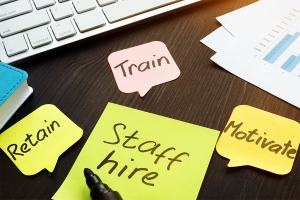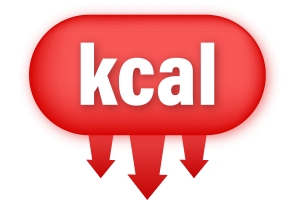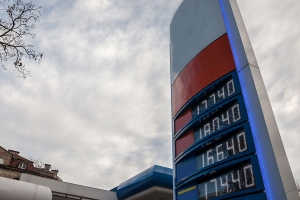Chris Potter
How to retain quality talent in hospitality
When it comes to the hospitality industry, there’s no denying that staff plays a crucial role especially after dealing with the devastating effects of Covid-19. Even with the best menu or interior design, without high-quality staff, a hotel or restaurant is doomed to fail. So, what can managers do to ensure they’re hiring and retaining talent that adds value to their business in the wake of a pandemic? Keep reading on for the best ways to retain quality talent in the hospitality industry.
Offer quality training and progression opportunities
According to a recent a recent study conducted by YouGov and Deputy, the hospitality industry currently has an employee turnover rate of 30%. This is double the turnover rate of the national average and is projected to increase due to the fallout of Brexit and the pandemic. With such high levels of turnover to be expected, managers need to find ways to retain quality talent. The hospitality industry lost lots of valuable workers during national lockdowns who were forced to seek employment elsewhere. Because of this, the pickings are slim.
A great way to instil a feeling of purpose in your employees is by offering quality training sessions and progression opportunities. Instead of restricting members or staff to a certain role without the potential for progression, it’s important to offer training in other areas of the business. This shows your employees that you value their contribution to the company and are actively looking for ways they can broaden their skills. This lets your team know that you are actively involved in their progression and can inspire them to work in various roles.
Provide perks
If you’re not able to provide your employees with the salary increases they deserve, it’s important to provide perks in order to keep them around. With hospitality workers abandoning the world of restaurants and hotels for pastures anew during the pandemic, there needs to be an enticing reason for these quality workers to return. Simple perks that can go a long way with employees include employee discounts, a free meal or drink after completing each shift or a bonus scheme for selling certain items.
It’s also important to establish a positive culture that your team looks forward to working with. Why not host holiday parties each year for your team to show how much you value their contribution or offer a designated ‘employee of the month’ parking space right up front? Simple perks can go a long way.
Treat your team with respect
Quality employees stick around at high-quality restaurants and hotels. If you offer your team training sessions and progression opportunities, perks, and show them you care by creating a culture you’re proud of, you’re more likely to retain talent that’s hard to come by. Making your establishment a great place to work is more important than ever after dealing with the effects of Covid-19. Old and tired methods of retaining great staff simply won't cut the mustard anymore. Why not institute some positive changes today and watch how your staff responds? You may be surprised to find out how little changes can have a huge impact on morale and retention rates.
James Webber Recruitment offers support across the hospitality industry. Should you need any help hiring the right people for your team please visit our website to find out more.
How will the hospitality industry cope with the rising cost of VAT?
After Covid-19 took the world by storm, the UK government reduced the rate of VAT to 12.5% for the hospitality industry. This welcome VAT reduction took place in July 2020 and helped pubs, restaurants and cafes recover from the crippling effects of a national lockdown. But as of 1st April, the government has increased the rate of VAT back to 20%, which was the normal standard VAT rate for the hospitality and tourism sector before the world entered a global pandemic. As the hospitality industry has been hit with a variety of challenges, this isn’t exactly a welcome change. Will the hospitality industry be able to cope with the VAT increase? What will this mean for customers? Keep reading on to find out more.
Bills keep increasing
While it’s normal for every industry to feel the effects of rising costs each year, hospitality has been especially hard done by in recent years. This industry was hit particularly hard by lockdown restrictions, with pubs and restaurants scrambling to create usable outdoor spaces to accommodate new legislation. The temporary reduction in VAT in July 2020 was a welcomed gesture from the government, as it allowed restaurants to get back on their feet.
The increase in VAT comes in the wake of increases in energy bills, food costs and national insurance payments. Given the timing, much of the hospitality industry is struggling to cope with these rising costs that are taking place all at once.
What will this mean for customers?
While the government made it clear that the reduction of VAT to 12.5% was a temporary move, some restaurants and bars are responding to the increase of VAT to 20% by having to raise the cost of food and drinks for their customers. Clive Watson, chairman of the City Pub Group chain, has noted that they’ve had to increase his pub chain’s drink prices by 4% and will soon increase food prices by at least 7.5%. This means that the rise in VAT the increased costs of higher wages through pub recruitment challenges will not only be felt by the hospitality industry but customers alike.
The future of hospitality
The reduction of VAT during Covid-19 was a lifeline to many businesses operating in the hospitality sector. The increase of VAT back to 20% in the wake of other multiple price increases will definitely be felt by the industry as a whole and will have a knock-on effect on their customers. Only time will tell how this will pan out in the future.
JWR is a leading recruitment agency with 20 years of supplying across all sectors of hospitality. Should you require any support with appointing for your team, please visit our website to see how we can help.
It’s becoming clear that the phenomenal rise in interest in domestic holidays, breaks and outings is not a ‘bubble about to burst’ post-pandemic. In fact, according to a survey by one leading travel body, a large proportion of the UK population is either planning a domestic stay or has already booked a holiday or break at a UK destination in the coming months.
There are multiple reasons for this continued buoyancy in the British travel, tourism and hospitality sectors, as we explore below.
The COVID-19 legacy
Pandemic restrictions are in our rear-view mirrors, but this global crisis is still fresh in our minds. Staying closer to home for travel and leisure activities is reassuringly flexible and easy to arrange and change. Especially if you have fallen victim to cancelled foreign trips in the last two years.
Also, domestic stays are seen as a great way to connect with family and friends after the COVID era, which is also a hospitality trend that may continue.
There’s no place like home
The pandemic – and enforced staycations – have served to remind many people just how wonderful the UK is, and how many warm, welcoming hospitality providers there are on ‘home shores.’ Traditional bucket and spade holidays, visiting UK tourist attractions and soaking up British culture on city breaks are all continuing to stay ‘on trend’.
Economic and social uncertainty
Of course, the war in Ukraine hot on the heels of the pandemic has also served to make international travel less appealing. As well as headlines about mass sackings within ferry companies, reduced flight schedules and airport delays.
Also, UK breaks can be seen as a way of managing holiday spend better, particularly by heading to destinations within easy travelling distance to minimise fuel costs.
The possible down-curve
One of the ways the UK hospitality industry has achieved such positivity in recent times is that it is so diverse, with offerings to suit every budget and leisure interest.
That carries an important ‘flip-side’ though, as JWR Managing Director James Webber explains.
“What could derail this continued interest in domestic holidays and short breaks, is the ability of hotels, restaurants, and other hospitality businesses to maintain their quality standards, high levels of customer service and therefore unique selling propositions. Critical to managing this is the appointment and retention of welcoming members of staff. Challenges around recruitment are widespread but likely hot spots of Devon, Cornwall and the south coast are in need of support more than ever in hotels, pubs and restaurants.”
“Matching customer expectations and keeping them loyal all pivots on having sufficient skilled personnel to fill job roles. Especially intuitive restaurant and hotel recruitment in the face of UK-wide labour shortages. In other words, using your workforce to underpin your reputation and to keep domestic visitors coming back for more, more often!”
Contact JWR to find out how you can optimise continuing interest in the domestic tourism and leisure sectors, with the right job candidates.
How are restaurants using digitalisation to their advantage?
Few cities can rival the food and dining experiences available in London. From street cuisine to gourmet dining, London caters to a wide range of tastes and budgets. The last several years have been difficult for restaurants in London, as they've had to deal with lockdowns and restrictions, as well as a lack of personnel and supplies. But, thanks to digitalization solutions, restaurant owners have quickly overcome these obstacles and are not just surviving but prospering. Read on to learn some ways restaurants are using digitalisation to their advantage below.
1. Online ordering
For restaurants, online ordering is a mixed blessing. While they assist in raising sales, they also add complexity, which often leads to order errors, more work for an already overworked workforce and can create dissatisfied consumers.
Fortunately, restaurants can enjoy the advantages of online ordering without any additional stress by using order automation technology. Order processing is streamlined using online ordering systems, which reduces staff workload and eliminates manual input errors.
2. Self-ordering kiosks
Self-ordering kiosks aren't technically new. Many big restaurant chains had already installed self-ordering kiosks before the COVID-19 pandemic and had immediately found success with the equipment. McDonald's claims that locations that installed kiosks had a 5% to 6% increase in revenue.
Changes in consumer behaviour are mostly to thank for the increase in sales. Customers have become used to the convenience of online purchasing and are expecting the same degree of control and personalisation while dining out. Restaurant kiosks give a quicker and more customised ordering experience, putting them in a great position to fulfil shifting consumer expectations.
3. Restaurant management software
Restaurant management software is built with features that make it easier to run and manage a restaurant. Time-consuming procedures like pricing orders and table allocation can be handled by restaurant management software. It does, however, free up your staff to concentrate on other tasks that contribute to company development and customer satisfaction.
Using restaurant management software allows employees to be free of time-consuming activities and focus on providing excellent customer service. For example, management software can manually complete cash register balancing and double-check sales discrepancies.
Make sure to contact our expert team at JWR Recruitment for all your hospitality recruitment, hotel recruitment, bar recruitment and contract catering needs today. We can help you find the right staff for your business.
On April 6th 2022, there are new regulations coming into force that change the way food is displayed on menus, demanding that a calorie count is included. After working so hard to recover after the pandemic, the hospitality industry finds itself with a brand-new challenge, requiring calculations and menu reprints. But it doesn’t have to be hard and shouldn’t negatively affect your business if you know what to do. Here's what the new Calorie Labelling Regulations mean for your organisation.
Are you affected?
This new law will apply to businesses that have more than 250 employees and offer non-prepacked food or drink suitable for immediate consumption. So, this is aimed at chains rather than independents, but may affect cafes, pubs, restaurants, and takeaways too. It also applies to food delivery firms, franchisees, and caterers. Note: the new regulations apply to England only.
What will you need to do?
This legislation requires that the following information be displayed: The energy content of the dish in kcal, the size of a portion or the number of people served, and the statement “adults need around 2000 kcal a day”. This should be displayed at the point of choice for customers, including your menu, menu board or online ordering system. It doesn't mean that it should be on promotional material like adverts, though. For direct sale food, the information can be presented on the packaging. It should be clearly visible and unobscured.
How do you calculate calories?
Obtaining accurate data is the first step to ensuring you're following this legislation correctly. The Department of Health and Social Care has stated that the information provided to customers should be based on one of these: the manufacturer’s analysis of the food, a calculation from the known or average values of the ingredients used, or a calculation from generally established and accepted data.
You can use a combination of these methods across the menu and there is an accuracy margin of plus or minus 20%. There are a number of third-party businesses that can do this for you, or you might choose to go for laboratory analysis. Or alternatively, if you know what ingredients you are using and their calorie count, you could attempt to calculate it in-house.
Where does it not apply?
There are some exceptions to the law, but you may choose to include them anyway. These include things like condiments added by the customer, specials that are on the menu for less than 30 days, items requested by the customer that aren’t on the menu, alcoholic drinks over 1.2% ABV, and takeaway food that is unprocessed and not part of another dish (such as bread, fish, fruit, veg, meat and cheese).
JWR offers recruitment support across the UK, for more information please visit our website.
What will the impact of fuel prices mean for the hospitality industry?
It's an unfortunate fact that increased fuel prices will have a negative impact on hospitality. With hospitality being so inherently linked to other industries such as food production and transport, a change in fuel prices nationwide will affect the industry from a number of angles.
The price of food and drink
Eating out is one of the most common ways that consumers engage with the hospitality industry across the UK. As a result of increased fuel prices, food production faces increased costs too, with both factories and delivery companies having to spend more to produce and deliver the same supplies. This directly impacts businesses within hospitality, which will face increasing costs that they may have to pass on to their customers to maintain their profits.
Powering venues
With events in Ukraine and countries looking to source gas and oil away from Russian supplies, large scale venues, in particular, will struggle to manage costs in light of the recently increased fuel prices. Heating, lighting, and electrical costs will all escalate with the change. This puts significant pressure on large venues and those offering specialist experiences that require relatively bigger amounts of these resources.
The price of travel
Much of the UK’s hospitality industry relies on people travelling from afar wishing to explore new places. The increase in fuel prices means that transportation services will face their own financial changes. This may make such services more inaccessible to people who can’t or won’t pay the increased travel costs. Consequently, it's likely that the hospitality industry will see a decrease in the number of people engaging with the experiences on offer.
Further impacts on an industry already under pressure
In the current context, with the world still deeply affected by the COVID-19 pandemic, this only puts more pressure on a strained industry. Many businesses will face the difficult choice between maintaining their prices and losing profit or increasing their prices and risking a loss of custom. A loss of either of these could be detrimental to an already struggling business.
As with any change previously experienced by the hospitality industry, increased fuel prices do not prevent businesses from finding ways to adapt and succeed. As the situation evolves, it's important that those in the sector remain knowledgeable and flexible. This is ultimately what will enable businesses to remain stable in these uncertain times.
James Webber Recruitment offers recruitment support across the hospitality industry, should you like any further information please see how we can help on our website.
Recruiting the next generation of workers
Generation Z are those born between the mid-nineties and the early 2010s, so the oldest members of this generation are now entering the workforce in their droves. It’s predicted that Gen Z will grow to comprise 20% of the workplace over the next 5 years. With COVID-19 restrictions finally lifting again, Gen Z employees are vital for the hospitality industry to recover after the pandemic.
Covid and the hospitality industry
Government advice is to maintain adequate ventilation and good hygiene and to turn away staff and customers with symptoms, but otherwise, it’s business as usual. However, many young people are still concerned about Covid. Many employers find it helps to be clear with staff about what steps they are taking to diminish the risk where they can and encourage regular testing by providing lateral flow tests to employees.
Attracting the next generation for careers in hospitality
Gen Z grew up with technology and use it more than any other generation, with up to 80% of young employees looking on social media first when they begin their job search. Because of this, lots of employers are expanding their advertising onto social media platforms such as Instagram and TikTok in order to spread awareness of their brand and attract potential employees.
Generation Z are interested in social and political causes, and so are more likely to choose to work for a company that fundraises for local charities. Many companies have jumped on the activist bandwagon in order to attract younger generations as both staff and customers.
Overall, studies have shown that career progression, salary, and training & development are the most important factors in enticing new workers. Potential employees want to know if it is a job or a career.
Training new workers
Companies that communicate with their employees are often the most successful. Talking to employees about what they want and where they see themselves in the future gives them a greater sense of control over their careers and makes them more likely to stay.
Although Gen Z are ambitious, they are also more cautious and career-minded than millennials or Generation X. Because of this, they value workplaces that offer training and development. Many companies offer training partnerships, sponsor apprenticeships, in order to give employees, the qualifications necessary to work in hospitality while helping them grow and learn.
Generation Z prefer workplaces that offer flexibility, a team atmosphere, and recognition which is preferably tied to opportunities. Lots of employers have started partnering with on-demand pay providers so employees don’t have to wait two weeks for a paycheque and adopting smart scheduling software that allows employees to fit shifts around other commitments such as classes.
For support in finding the right candidates for your business please contact us.
The UK government is looking at adding hospitality to the list of up-skilling options for all skilled workers. Brexit, declining domestic populations, and employment changes have all contributed to the need for the government to support businesses that wish to develop workers with a wide range of skills and knowledge to meet new challenges.
There is even talk of expanding this scheme over time so it would not be restricted just to skilled workers already in the UK but also allow people who have skills as long as they have a properly recognised qualification or experience.
As one of the countries with a world-class hotel industry, it will be interesting to see what effect these changes have on recruitment for all areas inside and outside of the hospitality sector.
The benefit of adding hospitality to the skilled workers' scheme
This move is an attempt to remedy a shortage of workers in the hotel industry. The UK has needed this change for some time now and hopefully, it will have some positive effects on recruitment within the hospitality sector as well as other industries that could benefit from it too.
How are hospitality skilled workers recruited?
Hospitality is one of the sectors where there is a huge need for workers and hospitality recruitment has traditionally been a sector that has struggled in recruiting skilled workers.
More hotels are opening, and more jobs are being advertised, but according to research, hospitality is one of the most difficult industries to recruit for due to the high level of competition.
It's estimated that 70 million tourists visit the UK each year, with about 1 out of 8 visitors staying in a hotel for at least 1 night during their trip. This means there is an annual spend of about £5 billion in hotels alone and hotels employ around 170,000 people.
Challenges of hiring hospitality skilled workers
The hospitality industry is famous for having a very low level of recruitment and turnover for all levels of chefs, waiters, bar staff, and other hospitality work posts. In some cities, it's estimated that half the kitchen staff will have changed by the end of their first year, with only half staying at least a full year.
The reason for this is fairly straightforward: hoteliers may not meet the kitchen staff demands. This means that staffs that come from countries with higher levels of average wage tend to stay a year than if they came from countries where the average wage is lower.
Contact us and get to hire the right hospitality skilled professionals today.
What does the return-to-work message mean for hospitality?
The most recent change to covid-19 guidelines in the UK is the removal of the advice to work from home in England and Scotland. This means that millions of people are now returning to offices after nearly two years of working from home. So, what does this change mean for the hospitality industry?
Fewer restrictions
Now that the majority of restrictions for hospitality have been relaxed, this means that businesses can finally operate as normal and at full capacity, without having to facilitate social distancing and controlled movement around the premises. This will hopefully have a positive impact on business, working practices and the customer experience in the hospitality industry, leading to a steadier footing for the industry as a whole.
Increased footfall
The return of workers to office environments is good news for hospitality recovery because it will bring more people back into town and city centres and increase the demand for hospitality services. For example, lunch and breakfast foods to go, takeaway coffees and corporate catering will once again be well utilised. This also means a return of after-work drinks which could have a positive impact on pub trade and bar recruitment.
Covid risks
With the legal requirements to wear masks, socially distance and record contact details being removed, this means that staff might be at an increased risk of coming into contact with covid. Businesses should make sure they continue to assess the risks and put procedures in place to ensure staff are both safe and comfortable. Being fully vaccinated and adhering to testing and self-isolation guidelines is key to reducing the risks.
Events
Now that large gatherings can be facilitated, this is another piece of good news for the hospitality industry. Previously cancelled office parties and work events are likely to take place once again, as companies work to reintegrate teams face to face and enjoy taking part in social events face to face after so long. This will be a much-needed boost for events-based hospitality and catering services, not to mention public morale.
Recruitment
As things continue to get back to normal, this will hopefully drive an increase in demand for hospitality which might lead to a need for recruitment as things get busier. After a period of so much change and uncertainty, this could be a good time to look at attracting new people to the hospitality industry and refreshing training programmes for new staff.
If you are looking for a trusted hospitality recruitment service now that work is beginning to pick up, get in touch with JW recruitment today.
Until recently, employers have tended to treat candidates with long periods out of work with a degree of scepticism. However, the impact of Covid-19 has altered perceptions of gaps in CVs.
The natural tendency to avoid the longer-term unemployed
When recruiting and skimming a CV, hiring managers have often assumed that someone who has been out of work for a period has been so for a negative reason, such as:
They lost their most recent position because of poor performance
They have been overlooked by other employers
They lacked the motivation to find work
Another unexplained circumstance the candidate was unwilling to disclose
The changing attitude to CV gaps
We all know that recruiting in the pandemic era is challenging, particularly for certain sectors, such as hospitality, showing record numbers of vacancies across the industry.
The number classed as ‘long term unemployed in the UK peaked in early 2021 and has since slowly fallen. But at the end of October 2021, there was still a third more people out of work for over six months than there had been before Covid-19 hit.
However, we are seeing an increasing willingness from employers to invite people who have been without work for a period to an interview. There are now new and good reasons for a gap in employment history for many. Lots of people were forced to choose not to work because of health concerns or family responsibilities.
The very employers who are now struggling to recruit did - by no fault of their own - create a significant number of those breaks in continuous employment. Many hospitality businesses for forced to lay off large numbers of their workforce during periods of lockdown and economic uncertainty. In doing so, employers may be responsible for those gaps they used to filter out applicants.
But what next?
As recruiters in the hospitality sector, we’d still expect a candidate to acknowledge a period of unemployment and offer an explanation. A good interviewee might even twist it to a positive particularly those soft skills that we value in hospitality. For example, if they were caring for a loved one then they were able to brush up on their empathetic skills towards others. They might even have taken the time to learn some new recipes or cooking techniques which could be an asset to any catering venue.
So, perhaps the stigma of a CV gap has diminished, but for how long? With labour market shortages in so many sectors, at some point, we might once again start to consider that people we’d consider employing could and perhaps should have been in work prior to applying to our vacancy.
Are you seeking the right recruitment strategy in the hospitality industry in the current stage of the pandemic and are looking to learn about its impact on the jobs market? Get in touch to find out how we can tailor and manage your own approach to finding the right people.











